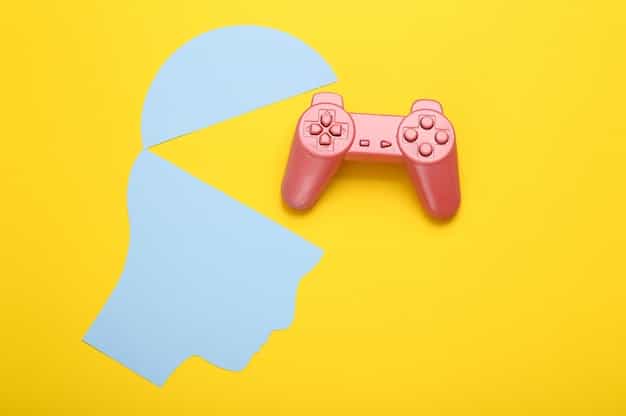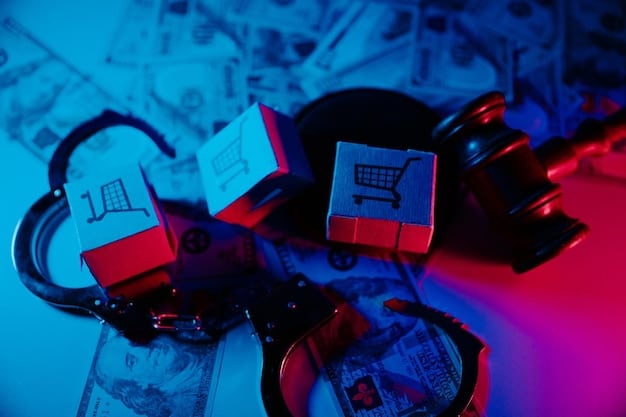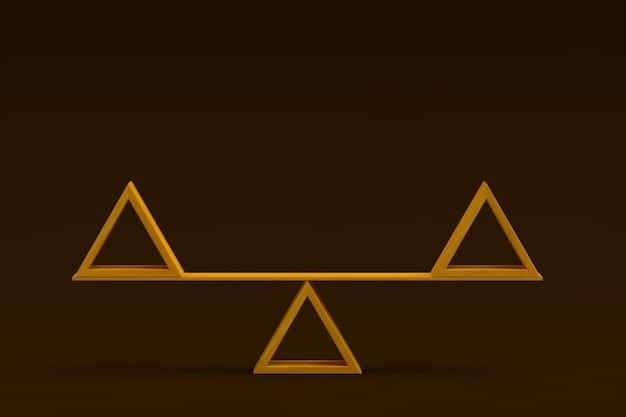Copyright Claims Surge: Impact on Game Modding & User Content in the US

Recent copyright claims against game modding platforms in the US are raising concerns about the future of user-generated content, potentially reshaping the landscape for creators, platforms, and copyright holders.
The recent surge in copyright claims against game modding platforms is sending shockwaves through the user-generated content (UGC) community in the US. These lawsuits have significant implications, potentially altering the way mods are created, distributed, and enjoyed, and reshaping the relationship between copyright holders and the modding community.
Copyright Claims and the Modding Community
The modding community has long been a vibrant part of the gaming ecosystem. Mods enhance games, extend their lifespan, and foster creativity. However, this ecosystem is now facing unprecedented challenges due to a rise in copyright claims.
These claims often target platforms that host and distribute mods, alleging copyright infringement. The legal battles that ensue can be costly and time-consuming, and the outcomes can set precedents that affect the entire UGC landscape.

Why the Increase in Copyright Claims?
Several factors contribute to the surge in copyright claims. Increased awareness of copyright law, technological advancements that make it easier to detect infringement, and a desire by copyright holders to protect their intellectual property are all playing a role.
Examples of Recent Lawsuits
Recent lawsuits against modding platforms highlight the growing tension between copyright holders and the modding community. These cases often involve popular games and modifications that allegedly infringe on copyrighted material.
- Case Study 1: A lawsuit against a platform hosting mods for a popular RPG, alleging unauthorized use of game assets.
- Case Study 2: A claim against a platform for distributing mods that included copyrighted music and art.
- Case Study 3: A lawsuit targeting a platform that allowed users to create and share mods that altered the game’s original story and characters.
In conclusion, the rise in copyright claims is creating uncertainty and apprehension within the modding community, and it’s essential to understand the underlying causes and potential consequences.
The Legal Framework: Copyright Law and Fair Use
Understanding the legal framework is crucial for navigating the complexities of copyright law and its application to user-generated content. Copyright law grants creators exclusive rights over their work, but those rights are not absolute. Fair use is a legal doctrine that allows certain uses of copyrighted material without permission from the copyright holder.
In the context of game modding, fair use can be a complex and contentious issue. Modders often use copyrighted assets from the original game, and whether this constitutes fair use depends on several factors.
The Four Factors of Fair Use
The fair use doctrine considers four factors when determining whether a particular use of copyrighted material is permissible:
These factors are weighed against each other, and no single factor is decisive. Courts consider the totality of the circumstances to determine whether a use qualifies as fair use.
- Purpose and character of the use: Is the use transformative? Is it for commercial or non-profit educational purposes?
- Nature of the copyrighted work: Is the original work factual or creative? Is it published or unpublished?
- Amount and substantiality of the portion used: How much of the original work was used? Was the portion used the “heart” of the work?
- Effect of the use on the potential market for the copyrighted work: Does the use harm the market for the original work?
Challenges in Applying Fair Use to Game Modding
While the fair use doctrine provides a framework for balancing copyright protection and creative expression, applying it to game modding can be challenging. The transformative nature of mods, the non-commercial nature of many modding activities, and the potential impact on the market for the original game are all factors that courts must consider.

In summary, copyright law and the fair use doctrine provide the legal framework for evaluating copyright claims against modding platforms. However, the application of these principles to game modding is often complex and fact-specific.
Impact on Game Modding Platforms
Copyright claims can have a devastating impact on game modding platforms. These platforms play a vital role in the modding ecosystem, providing a space for creators to share their work and for players to discover and enjoy mods.
The costs associated with defending against copyright claims, the potential liability for copyright infringement, and the need to implement measures to prevent infringement can all strain the resources of modding platforms.
Direct and Indirect Costs
The financial burden of copyright claims can be substantial. Platforms may incur legal fees, damages, and settlement costs. In addition, they may need to invest in technology and personnel to monitor user-generated content and prevent infringement.
Chilling Effect on Innovation
The fear of copyright claims can stifle innovation and creativity within the modding community. Platforms may become more cautious about hosting certain types of mods, and creators may be hesitant to share their work for fear of legal repercussions.
- Reduced Mod Availability: Platforms may remove mods to avoid legal risks, limiting user choice.
- Stricter Content Policies: Platforms may implement stricter content policies, restricting the types of mods that can be created and shared.
- Reduced Platform Viability: Smaller platforms may struggle to survive in a climate of increased legal scrutiny.
Ultimately, copyright claims can undermine the viability of game modding platforms, reducing the opportunities for creators and players alike. It’s crucial to find a balance between protecting copyright and fostering a vibrant modding community.
The Future of User-Generated Content
The current wave of copyright claims raises fundamental questions about the future of user-generated content. UGC has become an integral part of the digital landscape, enabling creators to share their work with a global audience and fostering innovation and creativity.
However, the legal uncertainties surrounding copyright and fair use are casting a shadow over the UGC landscape. The need for clarity, predictability, and a balanced approach is becoming increasingly urgent.
Potential Scenarios
Several potential scenarios could play out in the coming years:
Increased Collaboration
Some industry experts believe that increased collaboration between copyright holders and the UGC community is essential. By working together, they can develop guidelines and best practices that protect copyright while fostering creativity.
- Scenario 1: A more restrictive environment, with increased enforcement of copyright and stricter regulations on UGC platforms.
- Scenario 2: A more collaborative environment, with copyright holders and UGC platforms working together to develop fair and balanced guidelines.
- Scenario 3: A more fragmented environment, with different platforms adopting different approaches to copyright enforcement.
In conclusion, the future of user-generated content depends on finding a way to balance copyright protection and creative expression. Increased collaboration, clearer legal guidelines, and a willingness to adapt to the changing digital landscape are all essential.
Strategies for Modders and Platforms
In the face of increasing copyright claims, modders and platforms need to adopt proactive strategies to protect themselves. These strategies can help them navigate the legal complexities of copyright law and minimize the risk of infringement.
Modders can take steps to ensure that their work complies with copyright law, while platforms can implement policies and procedures to prevent infringement and respond to claims promptly.
Best Practices for Modders
- Obtain Permission: Seek permission from copyright holders before using copyrighted material.
- Transformative Use: Ensure that the mod transforms the original work in a significant way.
- Limit Use of Copyrighted Material: Use only the necessary amount of copyrighted material.
Best Practices for Platforms
Platforms can implement several best practices to minimize the risk of copyright infringement:
These strategies can help modders and platforms navigate the legal complexities of copyright law and minimize the risk of infringement. By adopting a proactive approach, they can foster a more sustainable and legally sound modding ecosystem.
- Implement a Clear Copyright Policy: Clearly define the platform’s policy on copyright infringement.
- Provide a Notice and Takedown Procedure: Establish a procedure for copyright holders to notify the platform of alleged infringement and request removal of the infringing content.
- Monitor User-Generated Content: Implement measures to monitor user-generated content for potential copyright infringement.
The Role of the DMCA
Many modding sites rely on the Digital Millennium Copyright Act (DMCA) to protect themselves from copyright lawsuits. The DMCA is a US law that provides a safe harbor for online service providers (OSPs) from liability for copyright infringement by their users, but it requires them to take action when they receive a notice of infringement, meaning that they take content down when flagged.
The DMCA’s safe harbor provisions are crucial for the operation of modding platforms. Without this protection, platforms could be held liable for the infringing activities of their users, making it difficult for them to operate.
The Notice-and-Takedown Process
The DMCA establishes a notice-and-takedown process that allows copyright holders to request removal of infringing content from online platforms. When a platform receives a valid DMCA notice, it must promptly remove or disable access to the infringing material.
Limitations of the DMCA
While the DMCA provides valuable protection for online platforms, it also has limitations. The notice-and-takedown process can be burdensome and time-consuming. In addition, some copyright holders have been accused of abusing the DMCA to suppress legitimate fair use activities.
The DMCA plays a critical role in protecting online platforms from copyright liability while also providing a mechanism for copyright holders to enforce their rights. However, the DMCA is not without its flaws, and ongoing debates about its effectiveness continue.
- Over-Removal of Content: Platforms may remove content even if it is not infringing to avoid legal risks.
- Chilling Effect on Free Speech: The threat of DMCA takedown notices can discourage users from expressing themselves online.
- Potential for Abuse: Some copyright holders may use the DMCA to silence critics or stifle competition.
| Key Point | Brief Description |
|---|---|
| ⚠️ Copyright Claims Surge | Increased legal actions impacting game modding platforms. |
| ⚖️ Fair Use Doctrine | Legal principle allowing limited copyrighted material use without permission. |
| 🛡️ DMCA Safe Harbor | Protects platforms from user copyright infringement liability. |
| 🤝 Collaboration | Essential for sustainable user-generated content ecosystem. |
[FAQ]
Frequently Asked Questions
▼
The primary concern is the potential chilling effect on creativity and innovation, alongside the legal and financial burdens on both creators and platforms.
▼
The DMCA’s safe harbor provision protects platforms from liability for user infringement, provided they adhere to notice-and-takedown procedures.
▼
Fair use permits limited use of copyrighted material without permission, depending on factors like transformative use and market impact.
▼
Modders can seek permission, ensure transformative use, and limit the amount of copyrighted material used in their mods.
▼
Collaboration is vital to establish clear guidelines that safeguard copyright while fostering a dynamic and legally sound user-generated content ecosystem.
Conclusion
The surge in copyright claims against game modding platforms is a wake-up call for the user-generated content community. Navigating the legal complexities of copyright law and fair use requires a proactive and collaborative approach. By understanding the risks, embracing best practices, and fostering open dialogue between copyright holders and the UGC community, we can ensure a vibrant and sustainable future for user-generated content.